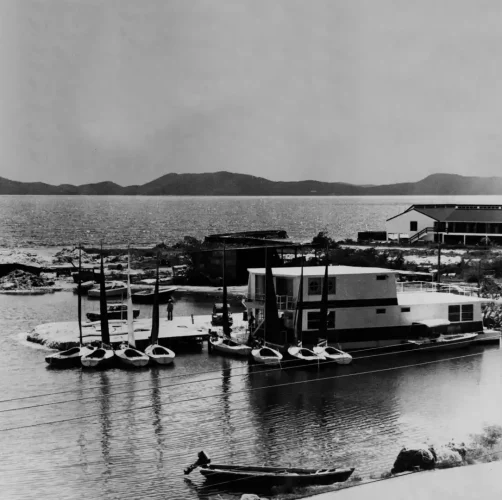HOW TO TRANSFER LAND – The term “land” includes the land itself and any irremovable buildings on it. Land transfer in the BVI is governed by the Registered Land Act. Since the early 1970s all land in the BVI is plotted on a central grid and each separately-owned piece of land is given a reference number for identification purposes. All dealings with that piece of land are then entered in a central register in a file bearing the reference number.
The register, kept at the Land Registry, is open for inspection by the public on payment of a modest fee. A purchaser is deemed to have notice of every entry in the land register relating to the land being purchased.
The contract
After the vendor and purchaser have agreed the price and other terms of sale, the agreement should be put into writing. A written contract will not only stipulate the price, but will describe the land being sold and provide the date for completing the sale.
As soon as the contract is signed, the purchaser should lodge a “caution” with the Registrar of Lands. A caution is an order prohibiting any dealings with the land between the date when the contract is made and when the sale is completed; and it serves to give notice of the purchaser’s agreement to buy the land. This is especially important when the purchaser has a large amount of monies tied up in the deposit or where there is likely to be a considerable lapse of time between the signing of the Agreement and the signing of the transfer.
Some responsibilities of the Vendor
If a house is on the property, the vendor is strongly advised to keep it insured down to the date of the sale. (Likewise, the purchaser should ensure that the property is insured from the date of execution of the contract.) The vendor should also make a detailed inventory of the contents of the house and, if he is including these in the sale, agree with the purchaser as to how much of the purchase price is to be attributable to furnishings.
Examining the vendor’s title
After the contract has been executed, the purchaser must verify the vendor’s title. This is achieved by examining the land register, a physical examination of the land and by questioning the vendor on the land and his ownership. A search of the land register will reveal, for example, if the vendor is registered as the owner or the land, if the land is subject to a lease, an existing mortgage, or any other encumbrances or restrictions.
If the property is owned by a company, it is prudent to also conduct a search of the company’s file at the registry where it is incorporated and at its registered office in order to ensure that the company is in good standing and that the persons signing the contract and the transfer are authorised to do so.
The physical inspection of the land is done to determine if the area of the land that is being sold conforms to the area agreed to be sold and specified in the contract, if neighbours have built or otherwise encroached on the land, or if there are any unregistered rights of way or similar rights over the land. The purchaser ought also to engage a land surveyor to check the plan of the land to ensure that it accurately records the boundaries, size and location of the land.
The purchaser must not only carry out his own inspection of the land register but he ought also to apply for an official search by the Registrar of Lands under section 35 of the Registered Land Act.
Checking the vendor’s title is not altogether straightforward. A purchaser should also check for encumbrances not entered in the land register. These encumbrances, termed “overriding interests”, are those interests of third parties by which the purchaser is bound even though they are not entered on the land register. They include certain rights of way over the land, leases for less than two years, rights acquired by squatters, arrears of land and house taxes, and rights of the vendor’s spouse to a share of the land.
Completion of the sale
If the searches reveal that the vendor has good title to the land and if all the requisitions have been satisfactorily answered, the parties then proceed to sign the transfer, in the presence of witnesses, and the purchaser will pay the price to the vendor. The form of the transfer is set out in the rules made under the Registered Land Act. If the purchaser is not a belonger, a land holding licence is required before completion.
Taxes and registration fees
The signed transfer is taken to the Department of Inland Revenue for assessment and payment of stamp duty. Stamp duty in the amount of 4% (or 12% for a non-belonger) of the purchase price or the market value (whichever is the higher) is payable by the purchaser. Any arrears of land and house tax must also be paid before the transfer can be registered.
On payment, the transfer is registered at the Land Registry. If the transfer is being executed by one or more parties outside of the jurisdiction, that party should sign before a Notary Public in that country.
The payment of the price is called “the closing”. The purchaser will want to register his title immediately and will file the instrument of transfer and the discharge of the mortgage at the Land Registry as soon as possible after the closing The purchaser will also remove his caution at the time he registers the transfer.
LISA PENN-LETTSOME: Lisa joined Walkers in 2006 in the Private Client Department and is presently seated in Corporate Department. Prior to joining walkers, Lisa served as the Territory’s acting Deputy Governor for just under a year. Before this, she served over five years as Deputy Managing Director of the Territory’s Financial Services Commission and three years as Registrar of Companies. In February, 2006 Lisa was elected as President of the BVI Bar Association. She is a member of the Society of Trust and Estate Practitioners, the International Compliance Association, and the Offshore Institute.
JACK HUSBANDS: Jack is head of Walkers’ Litigation Department in the BVI. He has appeared as leader or instructing solicitor in the major BVI cases over the past 10 years and has a wealth of experience in BVI litigation.
Walkers focuses principally on corporate and international finance law with an emphasis on capital markets and structured finance, asset finance, hedge funds and private equity. The firm also delivers clear, concise and practical advice based on an in-depth knowledge of the legal, regulatory and commercial environment in the Cayman Islands, BVI and Jersey.
In conferring its 2006 “Offshore Law Firm of the Year” award, The Lawyer credited Walkers with “the strategic reshaping of the offshore market.”






